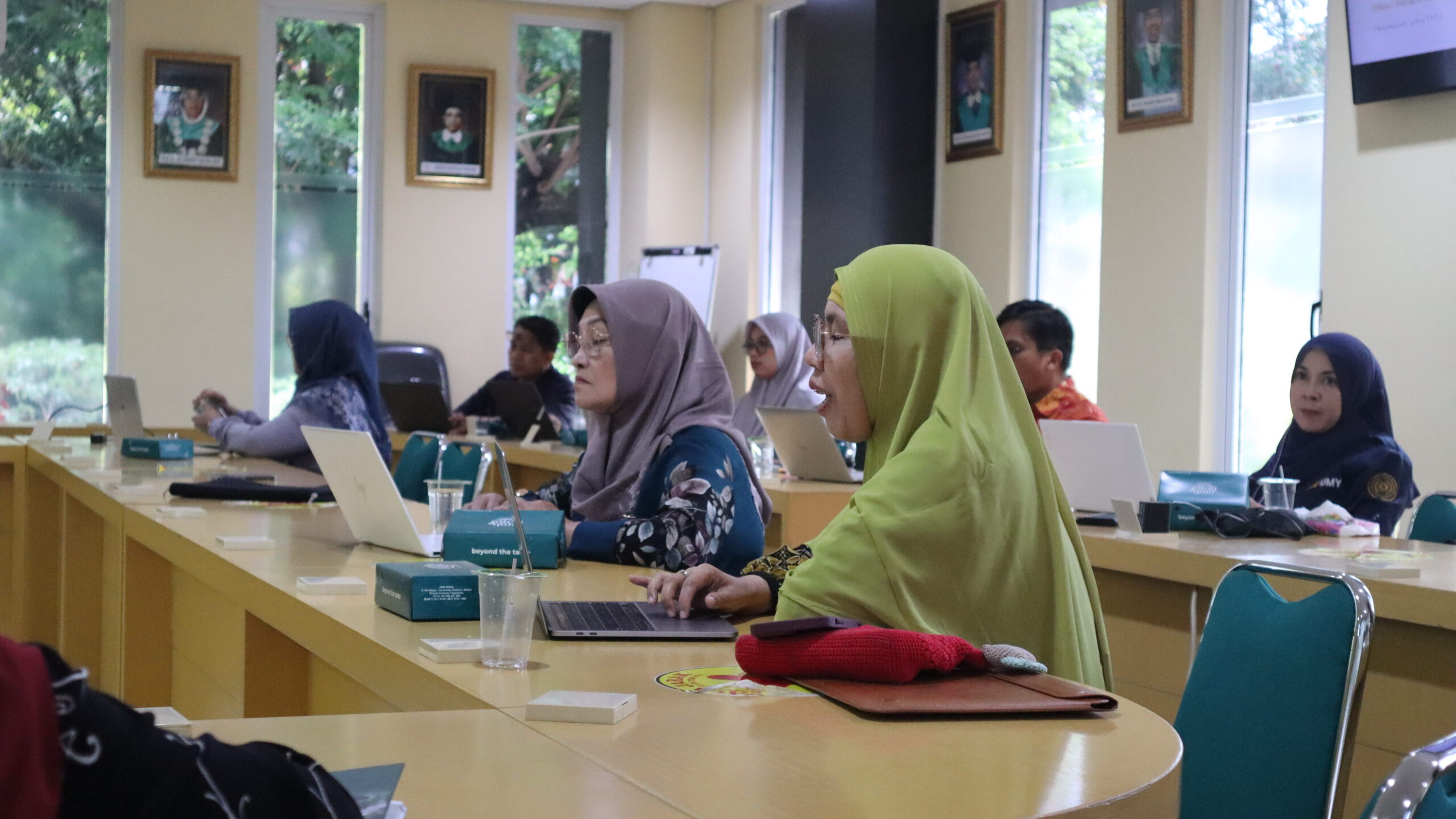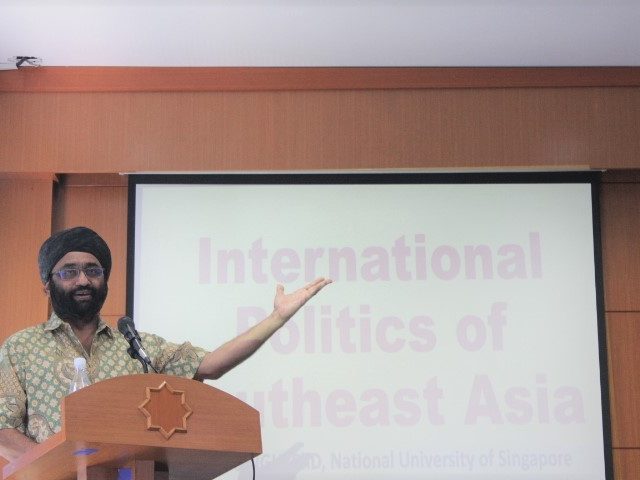

As reported on the official website of the Doctoral Program in Islamic Politics and Political Science, the Doctoral Program in Islamic Politics and Political Science at Universitas Muhammadiyah Yogyakarta (UMY) held a guest professor lecture themed “International Geopolitics and Its Impact on Indonesian Politics”. This event was held to increase knowledge of international issues and the need for the study of international political analysis (5/10). The guest professor lecture was attended by students of the Doctoral Program in Islamic Politics and Political Science and was held at the UMY Postgraduate Seminar Room.
Prof. Bilveer Sigh, Ph.D, a professor from the National University of Singapore, said that in this public lecture, three issues were discussed in international geopolitics and its impact on Indonesian politics. “There are three things that were discussed, namely the meaning of China’s rise for Indonesia, its impact on Indonesia, and the existence of terrorism and radicalism, all of which were reviewed with the concept of the Malacca Dilemma and The Thucydides Trap,” he explained.
In the concept of The Malacca Dilemma, Bilveer explained that this was China’s strategy to overcome the dilemma of the Malacca Strait at this time, with a focus on being able to enter the Papua region. To enter the Papua region, China does not pass through the Strait of Malacca. Several Southeast Asian countries are involved in China’s game, the clearest example being Myanmar. In addition, the concept of The Thucydides Trap, taken from the concept of the historian Thucydides, is seen in today’s reality that China is rising and will then stand side by side with the United States as a superpower, so in this case, it will inevitably experience war.
“Currently, the world is experiencing a trade war, where the trade war is not only a trade war but also a technology war, a political war, and a diplomatic war. And this indicates that China will become the number one country in the world. It should be noted that Southeast Asia has now been conquered by China, even in Indonesia, Papua and Java have been taken over by China,” he said.
Bilveer also explained several realities in Southeast Asia, including the existence of cyber warfare, the emergence of identity politics, uncertainty in economic growth in the northern and southern regions of various Southeast Asian countries, and domestic politics in Southeast Asian countries turning into a challenge. “Seeing the reality, there are also several changes in Southeast Asia influenced by the technological revolution, especially the digital information and communication revolution. With the existence of the internet and social media, the pressures of globalization and the free market, as well as raising expectations at the global and domestic levels, and pressure from all political angles, and economic changes,” he explained.
Jaminder Sigh, a lecturer at the S. Rajaratnam School of International Studies, Singapore, also explained that Southeast Asia is the most important part of international geopolitics and an important region in the conflict of great powers, namely the US, China, Russia, India, and Japan. “In addition, there is the phenomenon of old and new security issues, commonly referred to as traditional and modern issues. On the other hand, referring to a case, the rise of radicalism and terrorism is something that must be considered in the Southeast Asian region, which shows the network between external conflicts in Central Asia and countries in the region. Then, the key to security in a region is the ability of the state to calm domestic issues. Conversely, there are conflict issues in Papua that could provide opportunities for external forces to intervene in domestic affairs in Indonesia, which is similar to conflicts in Myanmar, Thailand, the Philippines, and Malaysia,” he added. (Sofia)